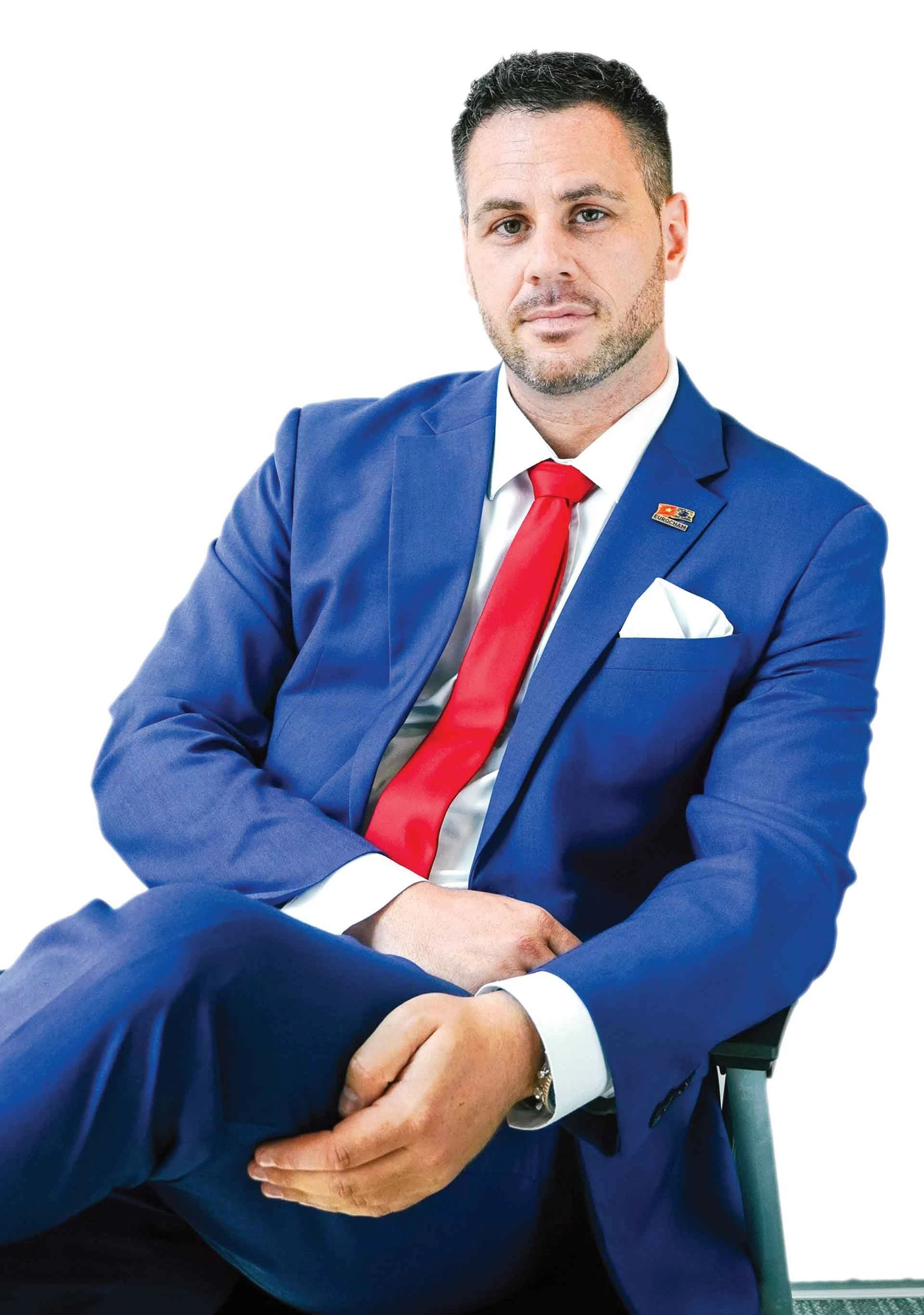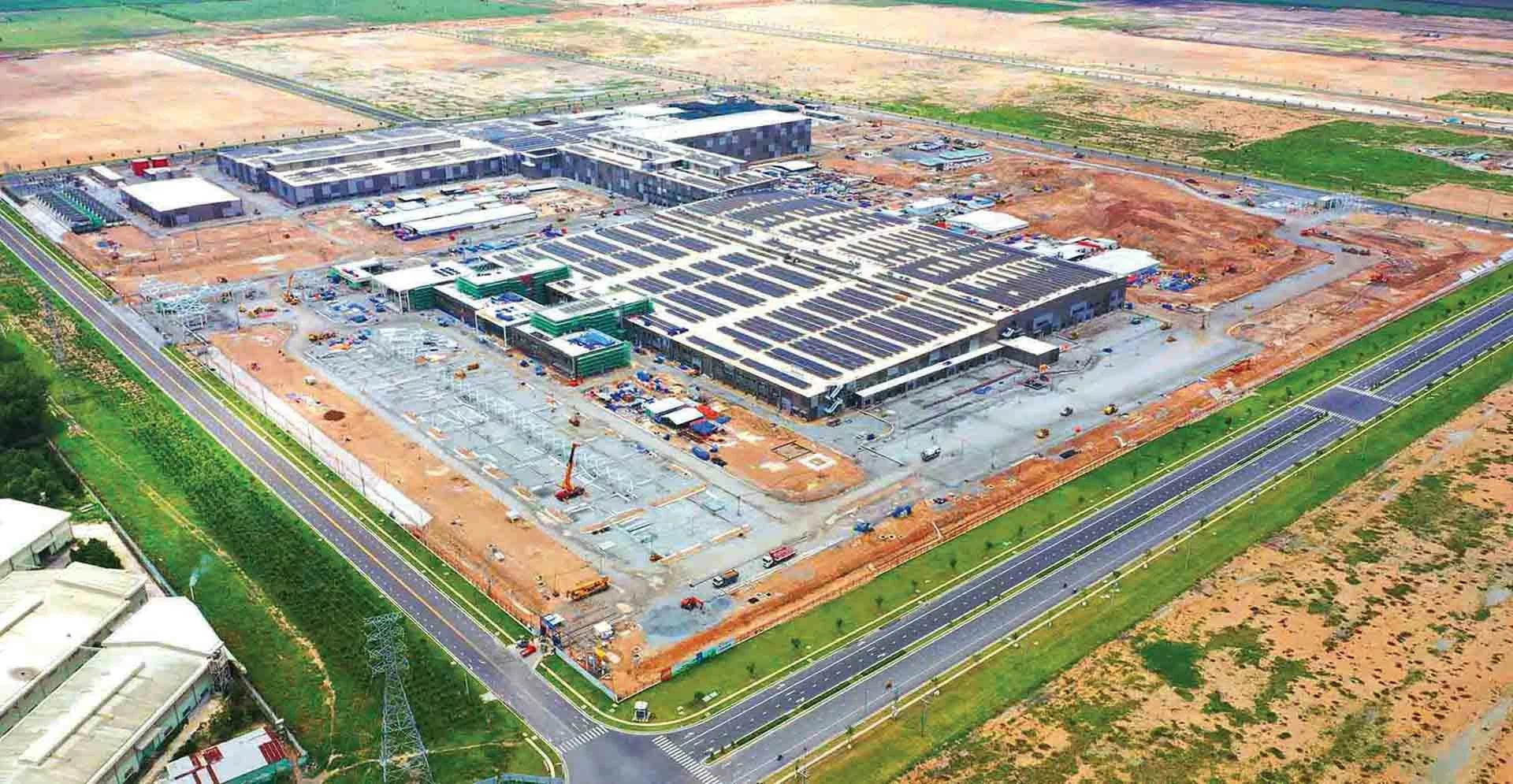
Chairman of EuroCham: The EVFTA has boosted Vietnam's appeal for European investors
Latest
Chairman of the European Chamber of Commerce in Vietnam (EuroCham) Dominik Meichle shared with The World and Vietnam Report on the fourth anniversary of the EVFTA Agreement (August 1, 2020 - August 1, 2024).
 |
| Chairman of the European Chamber of Commerce in Vietnam (EuroCham) Dominik Meichle. |
How do you review outcomes of nearly four-year implementation of EVFTA for enterprises of the two sides, the Vietnamese economy and FDI attraction of Viet Nam?
The EU-Vietnam Free Trade Agreement (EVFTA), which entered into force in August 2020, has had a significant impact. It has made Vietnam one of only two ASEAN countries, along with Singapore, to have a free trade agreement with the EU, giving it a competitive edge over other ASEAN nations still in negotiations with Europe.
The biggest impact can be seen in Vietnam's exports to Europe, which grew from about €35 billion in 2019 to more than €48 billion in 2023. Electronics, textiles, footwear, agriculture, and seafood have all seen strong growth.
However, EU exports to Vietnam have seen a smaller increase, rising only slightly from €11 billion to €11.4 billion during the same period. This has resulted in a growing trade surplus in Vietnam's favour. While a quarter of EuroCham Vietnam members have benefited significantly or moderately from the agreement, particularly through reduced tariffs and improved market access, there's clearly still potential for many more European businesses to gain from the EVFTA.
EuroCham also acknowledges that certain recent policy adjustments in Vietnam, such as the introduction of new taxes and technical barriers to entry, have presented challenges for European businesses operating under the EVFTA. There have been questions about whether these adjustments align fully with the spirit of the EVFTA and its intended mutual benefits.
EuroCham is committed to collaborating with the Vietnamese government to address these challenges and ensure the EVFTA reaches its full potential for both parties. Through open dialogue and mutual understanding, we believe we can create a more predictable and transparent business environment that fosters mutually beneficial outcomes for both European and Vietnamese businesses.
Attracting foreign direct investment (FDI) from the EU to Vietnam is also one of the outstanding highlights. What is your opinion on this issue?
The EVFTA has boosted Vietnam's appeal for European investors. The EU, already the 6th largest foreign direct investor in Vietnam, has invested €28 billion in 2,450 projects across the country. Despite a global decline in FDI, European investors added €800 million between January and September 2023, demonstrating continued confidence in Vietnam's potential.
However, to fully unlock the EVFTA's potential for attracting even more FDI, the EU-Vietnam Investment Protection Agreement (EVIPA) needs to be fully ratified. While EU institutions have already given their approval, the EVIPA requires individual ratification from all 27 EU member states. Although 18 member states have ratified the EVIPA since the EVFTA's implementation four years ago, securing the remaining approvals remains essential.
EuroCham Vietnam continues to actively advocate for the EVIPA's ratification among European stakeholders. This agreement is expected to significantly boost investor confidence and pave the way for increased European investment in Vietnam.
Are there still any difficulties for European businesses when implementing EVFTA?
While the EVFTA has opened up opportunities for European businesses in Vietnam, our latest Business Confidence Index survey highlights key ongoing challenges:
Complex Regulations: Many European companies find Vietnam's regulations difficult to navigate. The rules are sometimes complicated, change frequently, and can be interpreted differently by different government offices.
Non-Recognition of International Standards: Local authorities sometimes do not accept international standards, which can cause delays and extra costs for European companies, especially in areas like medicine and high-tech manufacturing.
Lack of Understanding: Not everyone fully understands how the EVFTA works, which can lead to missed opportunities and unintended mistakes.
Customs Issues: Different interpretations of customs rules can cause delays and extra costs for European companies exporting goods to Vietnam, especially those with complex supply chains or expensive products.
Despite these challenges, we remain optimistic about the EVFTA's potential. By fostering open and ongoing dialogue with the Vietnamese Government, we are confident that we can collaboratively address these concerns and further enhance the agreement's benefits for both European and Vietnamese businesses.
 |
| The EVFTA has boosted Vietnam's appeal for European investors. (Photo: Bao Dau tu) |
In the coming time, what do businesses from both sides need to do to continue utilising the benefits from this historic agreement?
First, investing in EVFTA training programs will help companies understand the agreement's provisions thoroughly. This includes learning about reduced tariffs, rules of origin, customs procedures, and sector-specific regulations. By doing so, businesses can maximise the advantages offered by the agreement.
Second, active engagement with governments and business associations like EuroCham is crucial. By sharing experiences and concerns, businesses can help identify and address implementation challenges, ultimately leading to a smoother and more efficient application of the agreement.
Businesses should also prioritise innovation and adaptation to meet the evolving standards of both markets. This could involve upgrading production processes, enhancing product quality, or implementing sustainable practices. By aligning with international standards, companies can ensure compliance with EVFTA provisions and boost their competitiveness in both markets.
What are your recommendations for Vietnamese businesses to improve their capacity and export competitiveness in the context that the EU is applying more green standards?
The European market holds great potential for Vietnamese businesses, but to succeed, they must meet the European Green Deal's sustainability standards. These rules cover areas like carbon emissions, deforestation, and responsible business practices, requiring substantial investment in skilled workers, technology, and resources.
Instead of viewing these requirements as obstacles, Vietnamese businesses should see them as an opportunity to invest strategically and become more competitive. By training employees on sustainable practices and using green technologies, businesses can not only meet EU standards but also lower costs and work more efficiently, turning compliance into a competitive advantage.
To support businesses in this transition, EuroCham Vietnam is committed to providing additional training opportunities and resources focused on understanding and implementing these green regulations. These initiatives will equip businesses with the tools and knowledge they need to adapt to the evolving sustainability landscape and thrive in the European market.
Collaborations with European companies, often pioneers of green innovation, can accelerate this transition by facilitating knowledge sharing, technology transfer, and access to sustainable solutions.
To encourage this collaboration and drive concrete action towards a greener future, we are organising the Green Economy Forum & Exhibition (GEFE) 2024.
Building on the success of previous events, which were attended by Prime Minister Phạm Minh Chính, GEFE 2024 returns to Ho Chi Minh City from October 21st to 23rd. Over three days, GEFE 2024 will feature numerous insightful conference sessions, an exhibition showcasing green innovations from hundreds of companies, and a high-level policy dialogue with VIPs from Vietnam and Europe.
This important event will bring together key players in the industry, SMEs, academics, and government officials. Together, we will explore solutions to meet the European Green Deal requirements, ensuring that Vietnamese businesses are ready to succeed in a sustainable global market.
Thank you so much!













